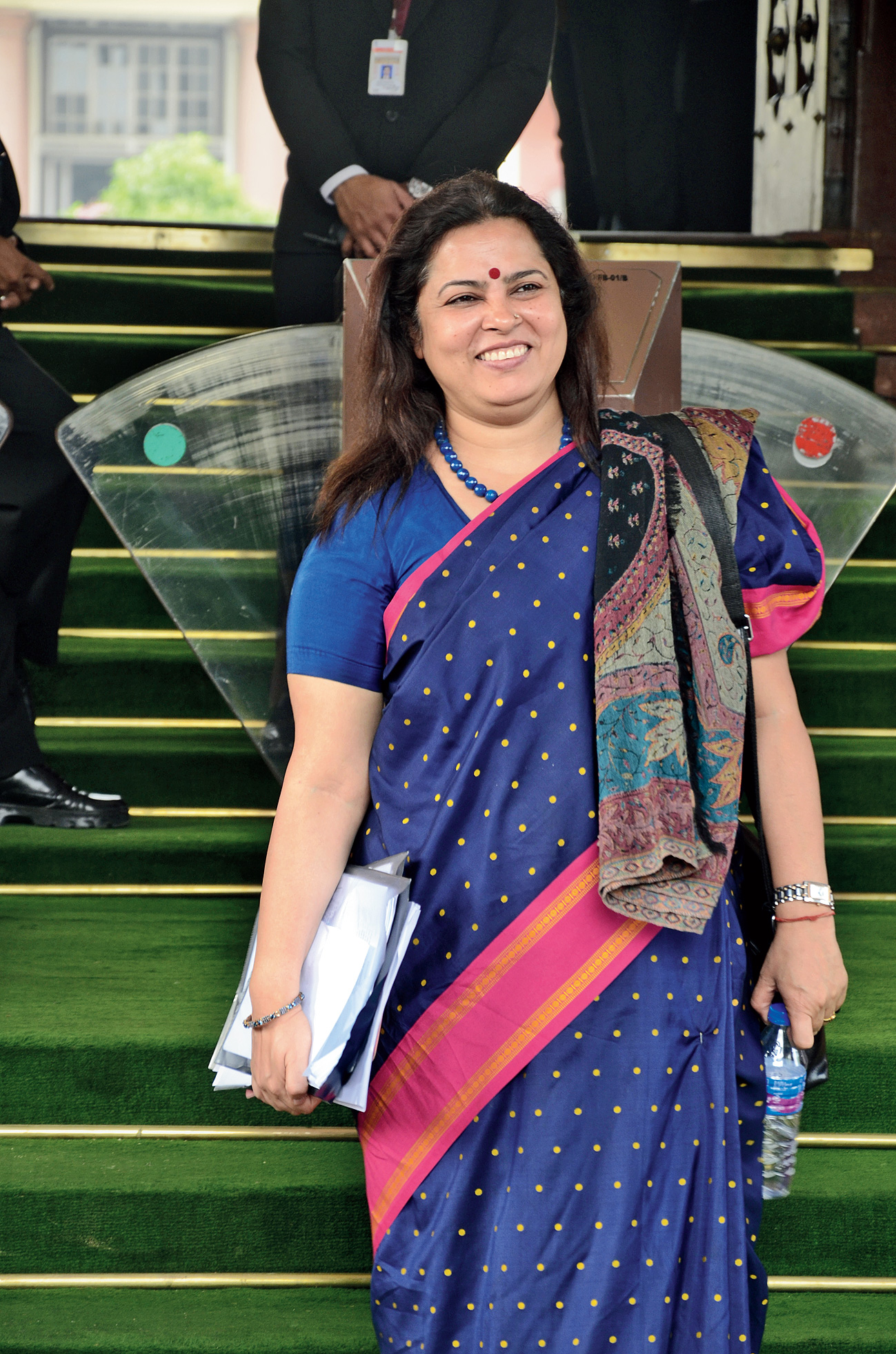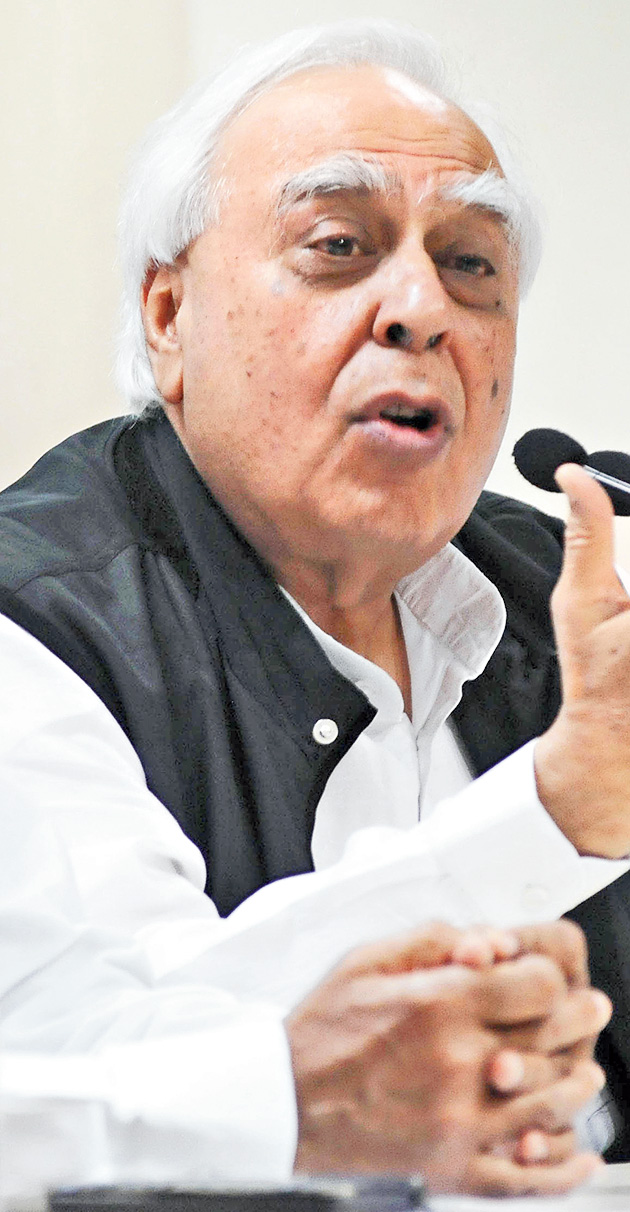
Meenakshi Lekhi File picture
The Supreme Court on Tuesday refused to debar lawmakers from practising as advocates, saying MPs, MLAs and MLCs are not salaried employees of the government and therefore cannot be stopped from continuing in the legal profession.
Several prominent MPs such as Kapil Sibal, Abhishek Manu Singhvi, Vivek Tankha, K. Parasaran, Meenakshi Lekhi and Bhupender Yadav practise in various courts.
Petitioner Ashwini Upadhyay had sought a bar on lawmakers from practising in courts on the ground that it violates Section 49 of the Advocates Act, 1961, which prohiits any person in full-time employment from practising in courts.
The petitioner had submitted that lawmakers are expected to spend their entire time and energy in addressing the problems of the people and draw salary from the Consolidated Fund of India.
Upadhyay had also argued that allowing legislators to practise law could amount to permitting them to indulge in conflict of interest that could be construed as professional misconduct since they might appear in matters that challenge the wisdom of Parliament and Assemblies. Besides they have the power to impeach judges as parliamentarians and at the same time practise before them in courts.
Rejecting the arguments, a bench of Chief Justice Dipak Misra and Justices A.M. Khanwilkar and D.Y. Chandrachud said the prohibitions mentioned in Section 49 applied only to those who were full-time salaried employees of a person, government, firm or corporation.
“Indubitably, legislators cannot be styled or characterised as full-time salaried employees as such, much less of the specified entities. For, there is no relationship of employer and employee,” Justice Khanwilkar wrote.
“The status of legislators is of a member of the House. The mere fact that they draw salary under the 1954 Act (The Salary, Allowances and Pension of Members of Parliament Act, 1954) or different allowances under the relevant rules framed under the said Act does not result in creation of a relationship of employer and employee between the government and the legislators, despite the description of payment received by them in the name of salary,” the judgment added.
The court agreed that legislators were deemed to be public servants, but they enjoyed certain legal protection and were “certainly not” full-time salaried employees.
The apex court said that considering the constitutional scheme, legislators were elected representatives of the people in Parliament and Assemblies and were not in the employment of anybody.
“They occupy a special position so long as the House is not dissolved. The fact that disciplinary or privilege action can be initiated against them by the Speaker of the House does not mean that they can be treated as full-time salaried employees,” Justice Khanwilkar wrote.
“Similarly, the participation of the legislators in the House for the conduct of its business by no standards can be considered as service rendered to an employer. One ceases to be a legislator only when the House is dissolved or if he/she resigns or vacates the seat upon incurring disqualification…. By no standards, therefore, Rule 49 as a whole can be invoked and applied to the legislators,” Justice Khanwilkar added.
“Merely because the advocate concerned is an elected people’s representative, it does not follow that he/she has indulged in professional misconduct.
“Similarly, the conferment of power on the legislators (MPs) to move an impeachment motion against the judge(s) of the constitutional courts does not per se result in conflict of interest or a case of impacting constitutional morality,” Justice Khanwilkar wrote.











